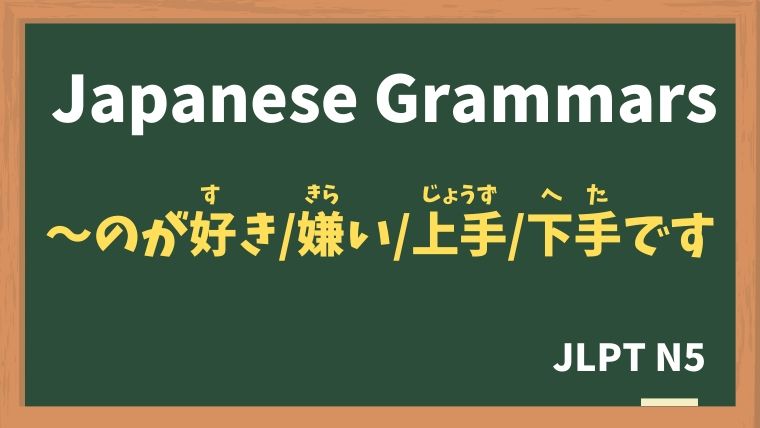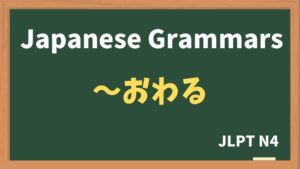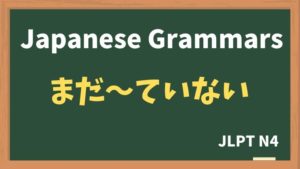
Contents
Explanation:〜のが好きです / 嫌いです / 上手です / 下手です
fa-check-circleMeaning
"like doing/ doesn't like doing / be good at doing / be poor at doing"
Used to talk about preferences, skills, and abilities. Each of these patterns involves describing how someone feels about performing an action, whether they like, dislike, are good at, or are poor at it.
fa-check-circleForm
V(Dictionary form) + のが好きです。
V(Dictionary form) + のが嫌いです。
V(Dictionary form) + のが上手です。
V(Dictionary form) + のが下手です。
fa-check-circlePoints
- Describing Preferences: "〜のがすきです" and "〜のがきらいです" are used to say that someone likes or dislikes doing something.
- Describing Ability: "〜のがじょうずです" and "〜のがへたです" describe someone’s skill level, either indicating proficiency or a lack of it in a particular activity.
- Verb Form: Use the dictionary form of the verb + の to turn the verb into a noun phrase, which allows it to be treated as a subject in the sentence.
fa-check-circleJLPT Level
N5
Sample sentenes
1. 〜がすきです
私は 日本語を勉強するのが好きです。
I like studying Japanese.
私は 本を 読むのが好きです。
I like reading books.
私は 映画を 見るのが好きです。
I like watching movies.
弟は テニスを するのが好きです。
My younger brother likes playing tennis.
私は 寝るのが好きです。
I like sleeping.
2. 〜がきらいです
私は 部屋を 掃除するのが嫌いです。
I don't like cleaning my room.
私は 歌うのが嫌いです。
I don't like singing.
私は 料理をするのが嫌いです。
I don't like cooking.
私は 洗濯するのが嫌いです。
I don't like doing laundry.
3. 〜のがじょうずです
メアリーさんは 日本語 を話すのが上手です。
Mary is good at speaking Japanese.
彼は 車を 運転するのが上手です。
He is good at driving a car.
トムさんは 箸で 食べるのが上手です。
Tom is good at eating with chopsticks.
4. 〜のがへたです
私は 絵を 描くのが下手です。
I am not good at drawing.
ジョンさんは 泳ぐのが下手です。
Mr. John is not good at swimming.
田中さんは ラブレターを 書くのが下手です。
Mr. Tanaka is not good at writing love letters.
Vocabulary
| Japanese | English |
| おとうと | younger brother |
| へや | room |
| そうじする | to clean |
| せんたくする | to do laundry |
| うんてんする | to drive |
| かく | to draw |






